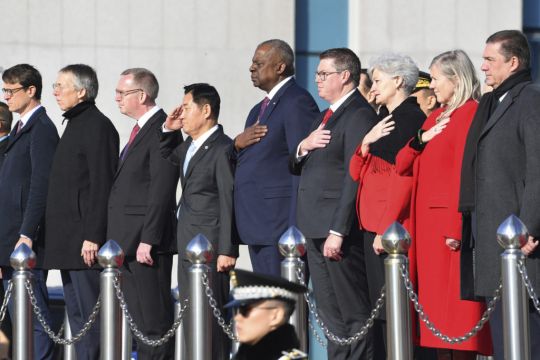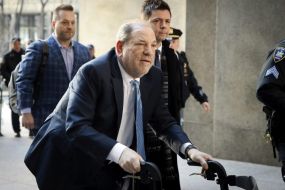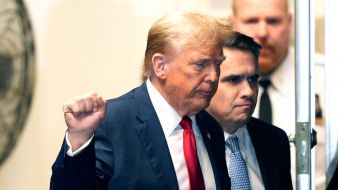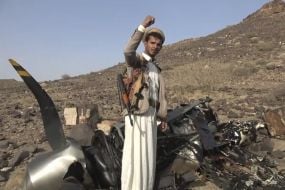Senior defence officials from South Korea, the United States and other nations warned North Korea on Tuesday over its nuclear ambitions and threats, vowing an unspecified collective response to any war-like aggression towards its rival.
Their joint statement came after a meeting in Seoul involving US Defence Secretary Lloyd Austin, South Korean Defence Minister Shin Won-sik and officials from 16 other countries under the US-led United Nations Command, which provided combat or medical forces in support of the South during the 1950-53 Korean War.
The meeting came a day after Mr Austin and Mr Shin held annual defence talks where the allies updated a bilateral security agreement with the aim of more effectively countering North Korea’s evolving nuclear and missile threats.
In the statement, the defence ministers and other representatives of the UN Command’s member states strongly condemned North Korea’s “unlawful” nuclear and ballistic missile programmes which violate multiple UN Security Council resolutions and called for Pyongyang to recommit to diplomacy aimed at defusing the nuclear stand-off.
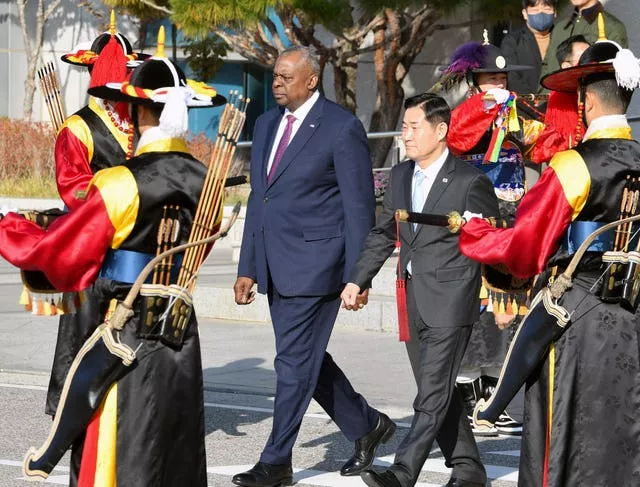
The UN Command’s member states also declared “they will be united upon any renewal of hostilities or armed attack on the Korean Peninsula challenging the principles of the United Nations and the security of (South Korea)”.
Mr Shin said during the meeting that the North will face a “strong response from the international community centred on the UN Command” if it ever attempts to invade the South again.
He also issued a veiled warning against Pyongyang’s growing alignment with Russia and China, as North Korean leader Kim Jong Un tries to break out of diplomatic isolation and insert Pyongyang as part of a united front against Washington.
“If the countries that supported North Korea during the Korean War offer to do so again, they too will face the same punishment as North Korea,” Mr Shin said.
The Korean War was triggered by a North Korean attack on the South in June 1950. The North was backed by forces from the newly formed People’s Republic of China, which was aided by the then-Soviet Union’s air force.
South Korea, the US and troops from various countries under the direction of the United Nations fought to push back the invasion before the fighting was halted by an armistice in 1953, leaving the Korean Peninsula in a technical state of war. The UN Command has since remained in the South to enforce and maintain the armistice.
Before Tuesday’s meeting, North Korea’s Foreign Ministry condemned the event as reflecting a “dangerous scheme to ignite a new war of aggression”.

The North’s state media also criticised the visits by Mr Austin and US Secretary of State Antony Blinken, who travelled to Seoul last week, calling them “warmongers” bringing a “new war cloud” to Asia.
Animosity between the Koreas has increased in recent months after Mr Kim ramped up his weapons demonstrations, including events he described as simulated nuclear attacks on the South.
He also authorised his military to launch pre-emptive nuclear strikes against enemies if it perceives Pyongyang’s top leadership to be under threat.
South Korea has responded by expanding its combined military exercises with the United States as well as trilateral security co-operation with Japan.
Seoul has also been seeking stronger public assurances from Washington that the US would swiftly and decisively use its nuclear weapons to protect the South in case of a North Korean nuclear attack.
In the allies’ latest drills, South Korea’s military said on Tuesday that it has deployed warships, patrol aircraft and fighter jets to train with US vessels and aircraft in a joint anti-submarine and counter special-operations exercise in South Korea’s eastern seas. The training continues until Thursday.
On Monday, Mr Austin and Mr Shin on signed a new version of the Tailored Deterrence Strategy agreement, which was revised for the first time in a decade to address the growing threat of the North’s nuclear program.
Mr Shin said the new document spells out that the US would mobilise its full range of military capabilities, including nuclear, to defend the South in the event of a North Korean nuclear attack.
He also said the document will provide a template for the allies to strategise how South Korea could assist US nuclear operations in such events with its conventional capabilities, but did not elaborate.

While Mr Kim is also trying to strengthen relations with China, Russia has been his primary focus.
A flurry of diplomacy between the countries, highlighted by a September summit between Kim and Russian President Vladimir Putin, has triggered concerns about an arms arrangement in which North Korea provides badly needed munitions for the Russian war in Ukraine in exchange for Russian technology transfers that would upgrade Mr Kim’s military nuclear programme.
A Russian delegation led by Alexander Kozlov, the minister of natural resources, arrived at Pyongyang’s airport on Tuesday. While the Associated Press photographed the arrival, the North’s state media did not immediately release details of the visit.
In written responses to questions from AP, South Korean President Yoon Suk Yeol said he will discuss the international response to the purported weapons deal between North Korea and Russia during the Asia-Pacific Economic Co-operation Summit in San Francisco this week.
He said such military co-operation not only poses a serious threat to the security of Asia and Europe but also undermines the rules-based international order.
Both Pyongyang and Moscow have denied US and South Korean claims that the North has been supplying munitions and military equipment to Russia.
